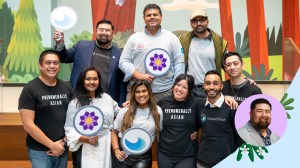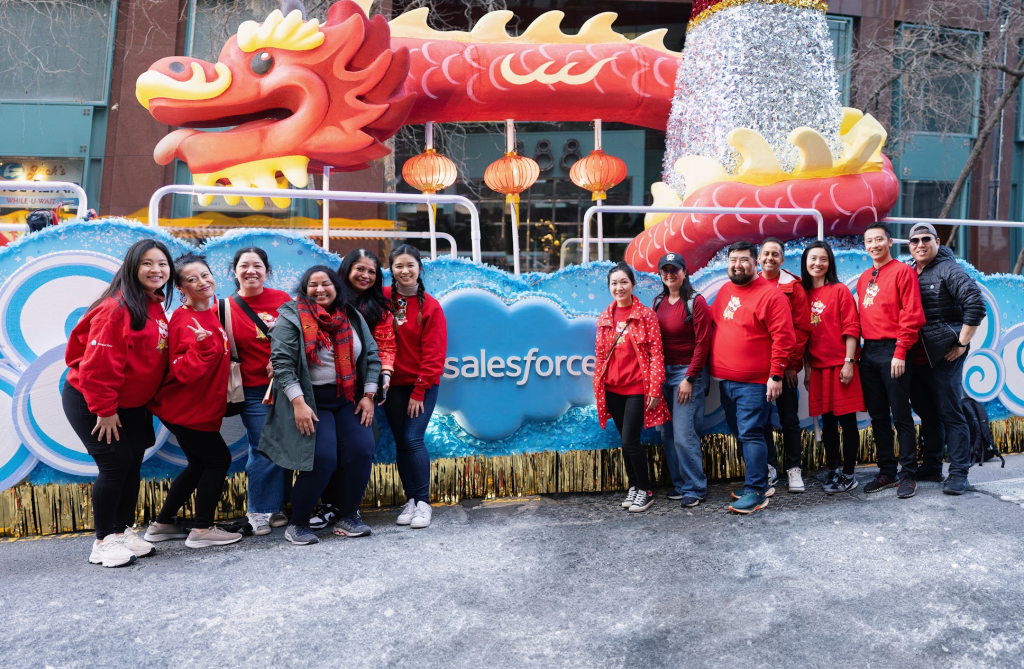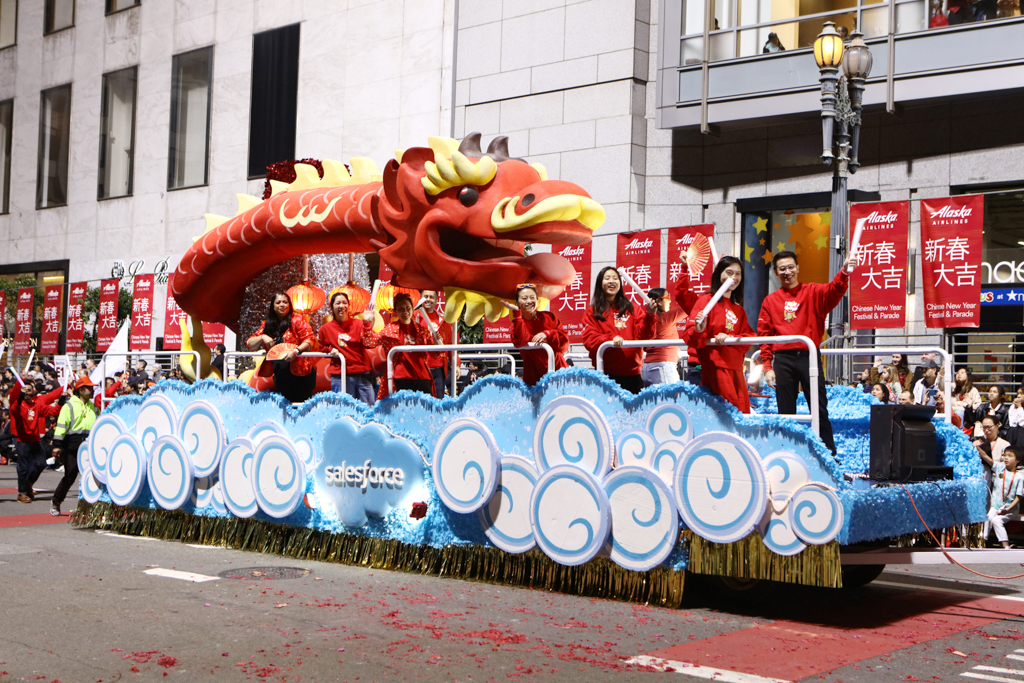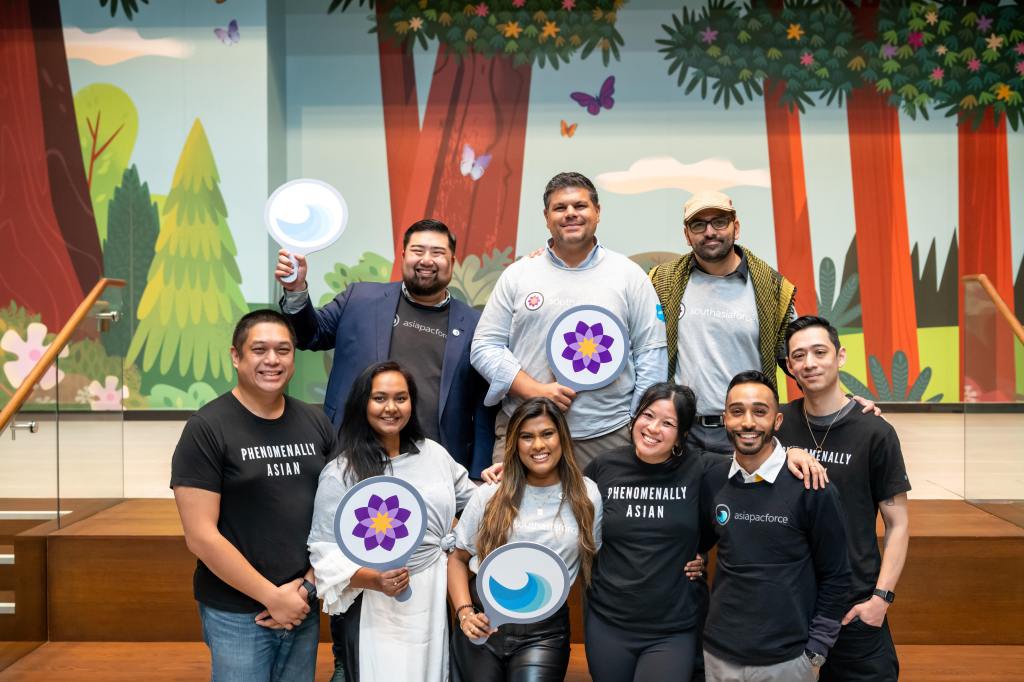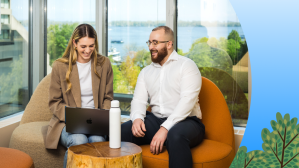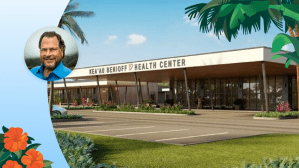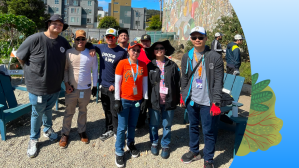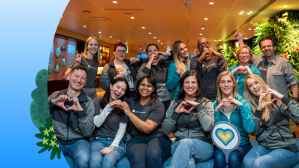Editor’s note: This story is part of an ongoing series to spotlight Salesforce Equality Groups and how they serve employees across the globe. Check out additional interviews with the leaders of Earthforce, Salesforce Women’s Network, and BOLDforce.
Asiapacforce, a Salesforce Equality Group with more than 7,000 members, is dedicated to celebrating diverse Asian voices and providing a supportive community for employees and allies. In honor of Asian American Pacific Islander (AAPI) Heritage Month, we spoke with Brian Chan, Senior Manager of Technical Architecture for Salesforce and Global President of the group.
Here, Brian shares the importance of bringing your full self to work, seeing representation in leadership, and celebrating the diverse backgrounds of the AAPI community.
Q. How did you get involved with Asiapacforce?
When I joined Salesforce seven years ago, I saw a post for a Lunar New Year event in San Francisco. I thought it was amazing that Salesforce celebrated these kinds of events through Asiapacforce.
I reached out to the event organizer and continued to raise my hand to help with various Asiapacforce events in San Francisco. Eventually, my involvement led me to take on a number of roles within the equality group — on a local and global level — and now, I’ve been Global President of Asiapacforce for the past three years.
Coming to a place like Salesforce, where we not only celebrate our differences, but we also put effort, time, and money into building programs to support employees of all backgrounds, was something I gravitated toward.
Brian Chan, Senior Manager of Technical Architecture for Salesforce
I feel a calling to help others find the same level of community that I found at Salesforce. I’m originally from a small town in Rhode Island where there were only a few Asian families. Growing up, I struggled with my identity and my place as an Asian American where there was little to no visibility. Coming to a place like Salesforce, where we not only celebrate our differences, but we also put effort, time, and money into building programs to support employees of all backgrounds, was something I gravitated toward.
Q. What are your priorities as Global President of Asiapacforce?
Asiapacforce is focused on providing a safe space for our members and allies to bring their full identities to work. We all carry a number of identities with us, so we partner with other Equality Groups — like Abilityforce and Salesforce Parents & Families — to host events that address topics like mental health, intersectionality, and more.
During the pandemic, we also saw a rise in anti-Asian hate. According to a Pew Research survey, 32% of Asian Americans said they knew someone who was threatened or attacked. We continue to feel this impact in predominately Asian communities across the United States. This is all the more reason to help our members feel psychologically safe when they come to work.
We’re also committed to providing professional development opportunities. A few years ago, we launched our Asian Leader Development program to train employees — and managers of those employees — on cultural competencies and to help bridge understanding of some of the barriers that can keep our members from advancing in their careers. To date, we have close to 150 graduates of the program.
Q. Can you share an example of how Asiapacforce has made an impact on Salesforce’s business?
Asiapacforce helped create the Equality Network, a solution built on Sales Cloud that allows our 13 Equality Groups to maintain a system of record across thousands of annual events and 300 global hubs. The Equality Network helps Equality Groups source minority-owned vendors and track vendor payments, event attendance, and leadership involvement. It can also generate reports that show the ROI of an event on the company and our communities. With Equality Network, our Office of Equality and Equality Group leaders can easily share information across the business and with each other, and scale the impact of their work.
Q. Could you share what activities Asiapacforce has planned for Salesforce employees during AAPI Heritage Month?
We are hosting an Asian Leader Summit to increase the recognition and visibility of Asian leaders at Salesforce, as well as a panel with Southasiaforce and Abilityforce to focus on intersectionality and supporting Asian employees with disabilities. I’m also excited to launch our Asian Mentor Network this month, which is the first program of its kind at Salesforce. The network consists of over 85 mentors who will provide coaching and support for nearly 200 mentees across Salesforce.
Q. What’s something you wish people knew about the AAPI community?
We are not a monolith. The AAPI community is made up of people from across East and Southeast Asia with diverse cultures and celebrations. On a global level, we try to honor and capture all of the voices and experiences from across various Asian communities. We have an internal awareness of our different cultures, languages, sub-roots, and intersectional groups — and we want others to recognize this wide range of traditions
Q. What’s the most surprising or unexpected thing you’ve learned during your time as a leader?
I’ve really learned the value of community. I’ve heard comments from many employees about how Asiapacforce is an essential resource for making connections and finding opportunities to grow their careers. It speaks to the incredible power that comes from building a community where employees can truly be themselves. Building this community is what drives me to do this work every day.
Getting to Know Brian
- What is your favorite holiday tradition?
- Lunar New Year. Every year, my cousins and I get together to host and cook a dinner. This past year, I turned my backyard into a Vietnamese Street Alley, complete with a homemade food cart.
- What is your favorite food?
- Chinese Beef Noodle Soup — specifically my dad’s.
- What is your favorite book on leadership?
- The Culture Map by Erin Meyer.
- What was your favorite Asiapacforce moment or event?
- Marching in the San Francisco Lunar New Year parade.
More information:
- Learn more about Salesforce’s commitment to Equality and Equality Groups
